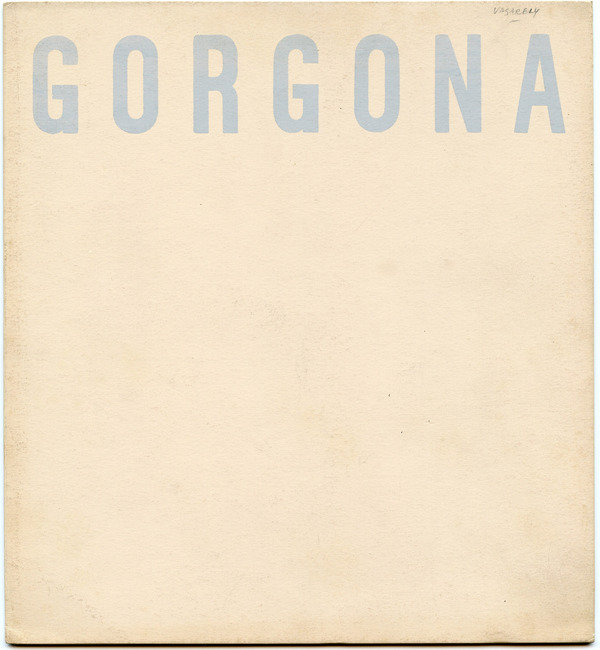Gorgona
dal 17/1/2013 al 1/3/2013
Segnalato da
Gorgona
Josip Vanista
Julije Knifer
Radoslav Putar
Marijan Jevsovar
Dimitrije Basicevic Mangelos
Matko Mestrovic
Ivan Kozaric
Duro Seder
Miljenko Horvat
17/1/2013
Gorgona
Zak / Branicka, Berlin
Please Attend. It seeks to highlight not only the work of Gorgona but also its wide range of collaborative efforts. Contact was established with numerous international artists, who like Gorgona, sought expression through reduced means: Lucio Fontana, Robert Rauschenberg, Piero Manzoni...

In 1961, Gorgona fled from the then powerful communism into the irrational, the
incomprehensible. The inactivity of Gorgona was noticeable. Several young people whose mutual
affection was the decisive connective factor met occasionally. Gorgona did not have any
messages! It was a particular type of activity, auto-ironic, affording a feeling of being unusual.
Perhaps it brought something new; perhaps it only resolved its life problems, feelings of being
hemmed in. Perhaps it left nothing behind apart from friendship and spiritual closeness. Josip Vaništa
ŻAK | BRANICKA is delighted to present the first exhibition by the proto-conceptual
Zagreb-based group Gorgona that unrealised itself between 1959 and 1966.
Josip Vaništa (1924), Julije Knifer (1924-2004), Radoslav Putar (1929-1994), Marijan Jevšovar
(1922-1998), Dimitrije Bašičević Mangelos (1921-1987), Matko Meštrović (1933), Ivan Kožarić
(1921), Đuro Seder (1927) and Miljenko Horvat (1935-2012) occasionally met, talked,
corresponded, exchanged “thoughts for the coming months” among themselves, sent one
another “homework” and “questionnaires”, went on “inspection tours of the seasons”, organised
exhibitions in a glazier’s shop they called “Studio G”, published the anti-magazine Gorgona,
arranged themselves, performed group- and auto-choreographed movements, set up, posed and
photographed.
All of the above was permeated with humour, wit and paradox, modelled by taking
over the terminology and the form of the society they had isolated themselves from through their
activities. Initially, the group name had come from one of the Mangelos’ poems, not the Tuscan
Archipelago island, but they later discovered this link and incorporated it into their work.
Eliciting
productions and collaborations both non-material and material gave the group an outlet to the
Post-WWII “universe without purpose” in what Vaništa has concisely described as “something
beyond the art of painting”.
The most recognized work by the group is the aforementioned Gorgona anti-magazine, which
was published between 1961 and 1966. Aside from designs by group members, Victor Vasarely,
Harold Pinter and Dieter Roth also made additional contributions. The first issue by Josep
Vaništa was made of nine pages that were each printed with the very same photograph of an
empty window display.
While the second to last issue consisted only of blank pages, the last
issue (both of which were created by Vaništa) was created with only one image on the inside
front cover. A total of 11 issues were published; additional concepts by Piero Manzoni or Ivo
Gattin (whose idea was to have blank pages pasted together) were prepared but never realised.
The exhibition at ŻAK | BRANICKA gallery seeks to highlight not only the work of Gorgona but
also its wide range of collaborative efforts. Contact was established with numerous international
artists, who like Gorgona, sought expression through reduced means: Lucio Fontana, Robert
Rauschenberg, Piero Manzoni, Piero Dorazio, François Morellet and Enzo Mari. In reference to
Yves Klein, for example, Gorgona created a suggestion for the colour “Gorgona’s Black”, which
coincided with Klein’s establishment of IKB (International Klein Blue).
The title of the exhibition, Please Attend, refers to the invitation to the exhibition entitled Modern
Style curated by Gorgona at Studio G in 1962. In lieu of a press release or invitation to the
exhibition, the group provided only these two words.
Opening January 18, 2013, 6 to 9 pm
Zak / Branicka
Lindenstrasse 35, Berlin
Hours: Tue.-Sat. 11a.m. - 6p.m.
Free Admission



